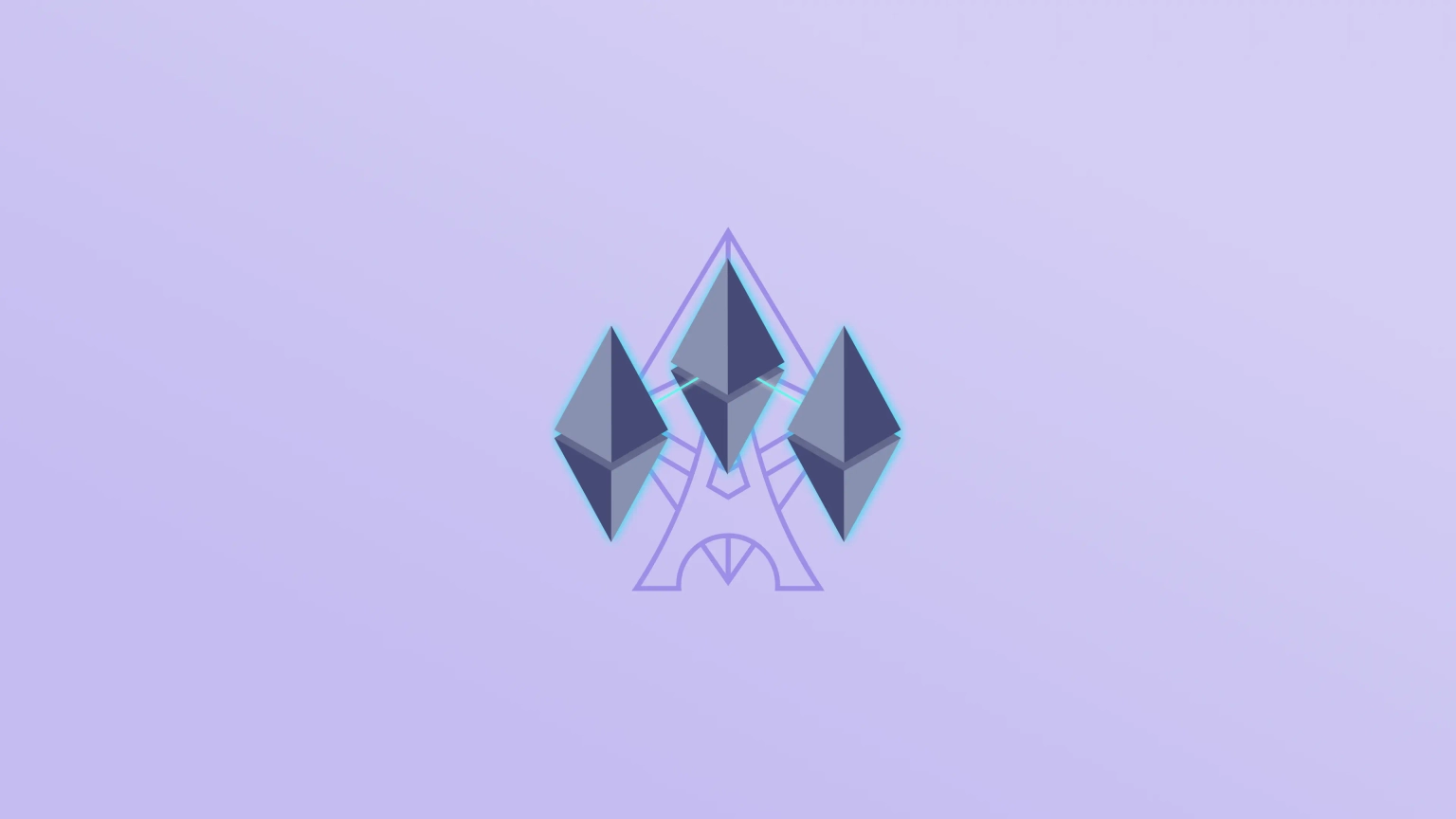
Collaboration between Neptune Mutual and SushiSwap
Explore Neptune Mutual's ongoing collaboration with SushiSwap offering several benefits.
Youtube Video
Playing the video that you've selected below in an iframe

Understanding Account Abstraction, its benefits, and the prospects in its mass adoption.
Ethereum has a huge user base, and we can see a constant growth in its developers and users even in this ongoing bear market. Ethereum developers, project owners, and enthusiasts are always actively looking for ways to onboard new users to the technology. One way to do this is by improving the user experience and providing flexibility when using Ethereum accounts.
Ethereum co-founder Vitalik Buterin was one of the highlights of the recent EthCC 2023 conference. The main topic he discussed was Account Abstraction (AA), a technology to simplify account management that could pave the way for mainstream adoption.
Account abstraction is a mechanism proposed by several blockchain professionals and Vitalik Buterin to improve the user experience and flexibility of using Ethereum accounts. In other words, account abstraction is a concept that’s meant to bring simplicity to managing accounts.
Account Abstraction introduces account contracts, a special type of smart contract that can manage a user’s Ethereum account. These are known as smart accounts. Smart accounts are essentially deployed as smart contracts and can be programmed as required. So, you can process transactions by applying logic determined by the code of a smart contract, as opposed to the manual approval required for each transaction with a traditional EOA.
Currently, externally owned accounts (EOAs) are one of the types of accounts used for interacting with Ethereum. These accounts are created by wallet software and provided with a set of public and private keys. A public key works as an address for your account, whereas private keys are required to sign transactions. You’re also provided with a seed phrase, a combination of words used for recovering your private keys.
The security of an EOA depends entirely on the private keys and seed phrase. Your funds are at risk if your private keys or seed phrase are stolen. And if the seed phrase is lost, there’s no way you can recover your account and the funds in it.
Since EOAs have these complications with managing keys, beginners could find it hard to get used to them. And when it comes to attracting new users to Ethereum in the coming years, this could be a big challenge to overcome.
Account abstraction is a solution to problems like the limitation of signing transactions and recovering accounts, the inflexibility of managing accounts, and the need to depend on private keys and seed phrases. Using smart contracts, you can deploy your custom logic to control funds, manage accounts, and authorize transactions. For example, you can add multisig authorization, account freezing, transaction limits, or other protection measures for transaction processing and securing accounts.
Some of the benefits of account abstraction include:
Better Security: Currently, Ethereum accounts are managed using a seed phrase and private keys for signing transactions. There's no way to recover accounts in case the seed phrase is lost, set your account’s spending limits, create whitelist accounts, or freeze accounts as required for security. Account abstraction allows developers to program several options for account authentication and recovery.
Beginner-friendliness: For users unfamiliar with blockchain, the intricacies of EOAs can be challenging to grasp. It might be complex for them to use and protect their keys properly, which might invite vulnerability. With account abstraction, different logics can be implemented to integrate security features and dictate how users want to process and authenticate transactions.
Easy Interaction With Web3: Each transaction in EOA requires approval and authorization individually. For activities that require frequent transactions, like gaming, it becomes time-consuming and less convenient. With account abstraction, it will be possible to carry out multiple transactions with one authorization, just like purchasing a basket of items with a single payment. This makes it easier for users to interact with Ethereum and Web3 applications.
Automation and Customization: With the current externally owned account (EOA) system, users can't customize transactions or automate them. Each one must be signed individually. Account abstraction opens the door for recurring payments and other forms of automation.
Gas Fee Management: Transacting on the Ethereum blockchain typically requires the payment of gas fees in ETH. However, account abstraction eliminates this by allowing the payment of gas fees with any other ERC-20 token. In addition, account abstraction allows anyone to pay gas fees for any other user’s transactions. dApps can also pay their users’ gas fees as a reward, sponsorship, or for making it seamless for users to use their app.
A user-friendlier UX without sacrificing control: Account abstraction gives developers the power to create 'wallets' that are non-custodial but still offer a simple, intuitive, and reliable experience for end-users. DeFi apps can be designed with a UI that feels more like a banking app, where users don't have to worry about key management, gas fees, and other issues.
While key management and account security are pressing issues, most users only have to deal with them once. Gas fees are an ever-present issue.
Paymasters simplify the handling of gas fees. Instead of a user having to get ETH every time they wish to transact (even if their goal is to spend a different token), the fees are abstracted away. This can happen in one of two ways:
Using Paymasters makes transacting in ERC-20 tokens and interacting with Web3 apps feel more seamless. It could also help protect privacy. For example, if a user has claimed tokens from yield farming or an airdrop, they can move them without having to connect those tokens to an ETH deposit from a KYC-ed exchange account.
EIP-4337 is a mature proposal, and it doesn't require changes to the underlying Ethereum protocol. In theory, it could be implemented quite quickly. Crucially, there's no need for a hard fork to implement account abstraction. The challenge comes with getting enough people to run the bundlers required to support the system.
Existing Externally Owned Accounts (EOAs) won't immediately benefit from account abstraction. They'll need to upgrade their account by deploying a contract on it. Many popular wallets like MetaMask, Ambire, Argent, etc. have already implemented some smart contract features and are gradually working to expand their feature set. Not all developers have embraced EIP-4337 at this stage, however, and it's understandable that existing Ethereum users may be reluctant to approve a new mechanism for managing wallets and conducting transactions.
For account abstraction to go mainstream, wallet developers must default to onboarding users with smart wallets. For this to happen, a critical mass of paymasters and bundlers supporting the system is required.
Nonetheless, Vitalik's talk at EthCC 2023 was encouraging and showcased how close we are to having intuitive, frictionless, and robust wallets that make Ethereum accessible to a more mainstream audience.
Account Abstraction provides several measures to strengthen the security of Ethereum accounts. It's essential to remember that in the ever-evolving DeFi landscape, no account is entirely safe from hacks and exploits.
That's why, at Neptune Mutual, we offer coverage for your funds and assets on the Ethereum chain. We are the first parametric insurance protocol on Ethereum, meaning we assess the incident rather than individual loss claims, which results in faster payouts.
Explore our dApp, browse various cover products, and secure coverage for your assets. Besides Ethereum, we also have our cover marketplace in Arbitrum, Ethereum’s layer 2 solution, and BNB Smart Chain.
You can contact us if you want to create a cover pool in our marketplace to protect your community from hacks and exploits.